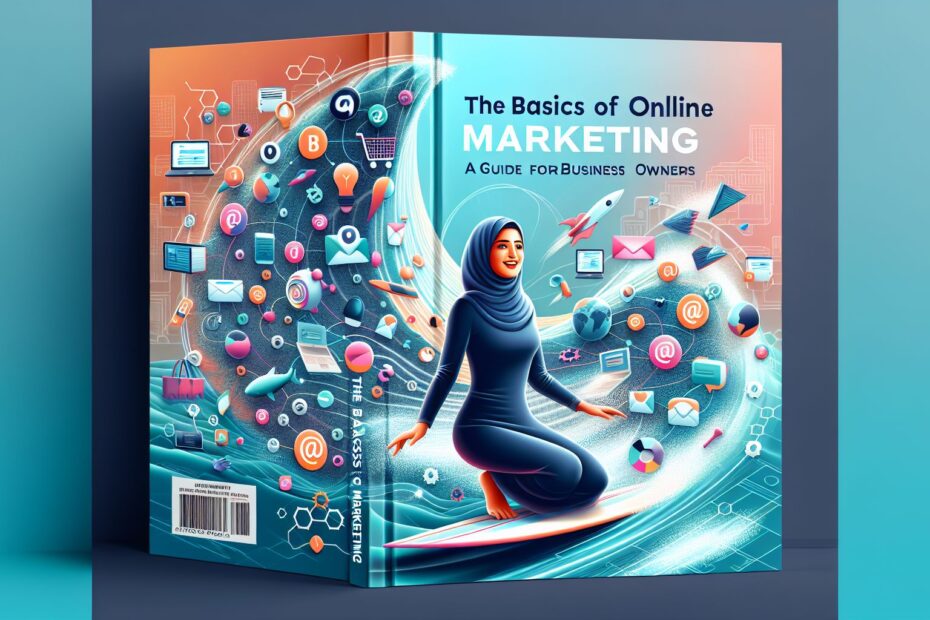In today’s digital age, it is essential for business owners to understand and leverage the power of online marketing. With the majority of people spending a significant amount of time online, it has become one of the most effective ways to reach and engage with potential customers. If you’re new to the world of online marketing, fear not! This guide will provide you with the basics to get started and help you navigate through the complex world of digital marketing.
Understanding Online Marketing
Online marketing, also known as internet or digital marketing, encompasses a wide range of strategies and tactics aimed at promoting products or services using online channels. These channels include websites, social media platforms, search engines, email marketing, and more. Unlike traditional marketing, online marketing offers businesses the ability to target specific audiences, measure results in real-time, and constantly refine their strategies for maximum effectiveness.
Key Components of Online Marketing
To effectively utilize online marketing, it’s important to understand its key components.
1. Website Creation and Optimization
Your website serves as the foundation for your online presence. It’s crucial to create a user-friendly, visually appealing, and mobile-responsive website that showcases your products or services. Optimizing your website for search engines (SEO) is also essential. This involves incorporating relevant keywords and meta tags, creating high-quality content, and ensuring fast page loading speeds.
2. Content Marketing
Content marketing involves creating valuable and relevant content, such as blog posts, articles, videos, or infographics, to attract and engage your target audience. By providing helpful information, you can establish your business as an authority in your industry and build trust with your potential customers. Remember to promote your content through social media platforms, email newsletters, and other channels to reach a wider audience.
3. Social Media Marketing
Social media platforms such as Facebook, Instagram, Twitter, and LinkedIn offer tremendous opportunities for businesses to connect with their target audience. By creating engaging content, building a loyal community, and running targeted ads, you can raise brand awareness, drive website traffic, and generate leads. It’s important to identify the social media platforms that are most relevant to your target market and consistently engage with your audience.
4. Search Engine Marketing (SEM)
SEM involves using paid advertising to increase your business’s visibility in search engine results pages. Pay-per-click (PPC) advertising, such as Google AdWords, allows you to bid on specific keywords and only pay when users click on your ads. This strategy can deliver immediate results and drive relevant traffic to your website. However, it requires careful keyword research, ad targeting, and ongoing monitoring to maximize your return on investment.
5. Email Marketing
Email marketing remains one of the most effective ways to nurture leads and build customer loyalty. By collecting email addresses through your website or other channels, you can send targeted messages directly to your audience’s inbox. Personalized email campaigns, offering exclusive promotions or useful content, can drive conversions and create lasting relationships with your customers.
Measuring Success and Making Improvements
One of the significant advantages of online marketing is the ability to measure the success of your campaigns and make data-driven improvements. Utilize analytics tools, such as Google Analytics, to track website traffic, user behavior, and conversion rates. Pay attention to metrics like click-through rates, bounce rates, and email open rates. Analyzing this data will help you identify what’s working and what needs adjustment, allowing you to refine your marketing strategies and achieve better results over time.
Conclusion
Online marketing offers incredible opportunities for businesses to connect with their target audience, increase brand awareness, and drive sales. By creating a visually appealing website, producing valuable content, engaging with your audience on social media platforms, utilizing search engine marketing, and implementing email campaigns, you can effectively market your products or services online. Remember, successful online marketing requires consistent effort, analysis of data, and adaptation to the ever-changing digital landscape. Embrace the power of online marketing, stay up-to-date with the latest trends, and watch your business grow!
